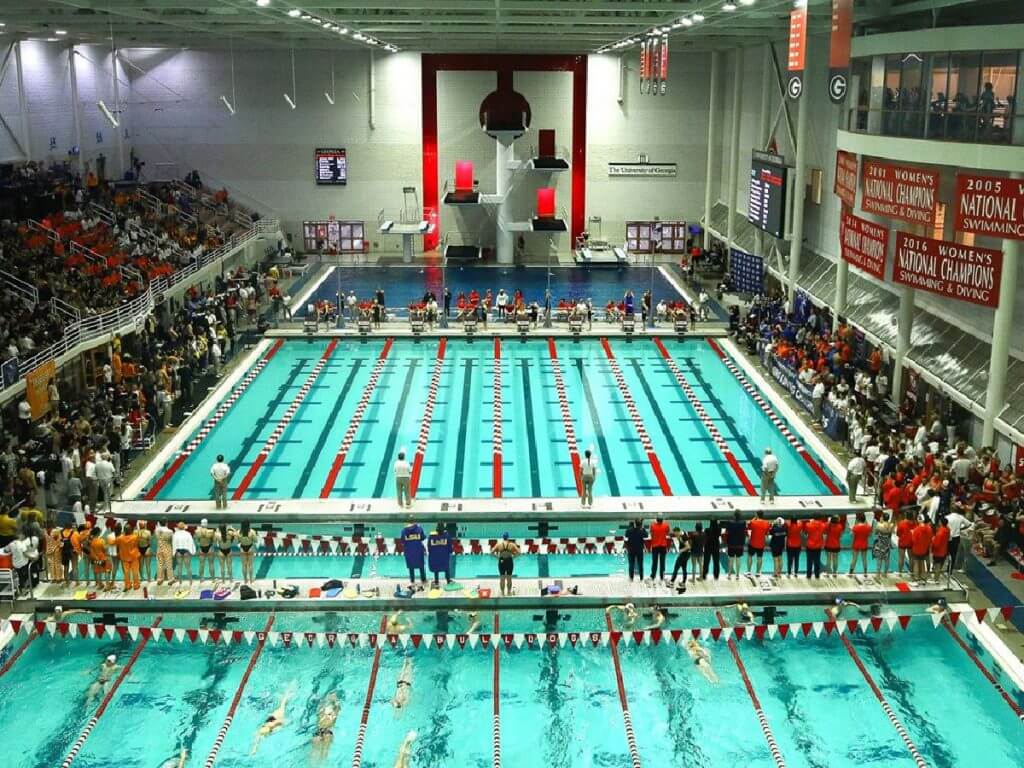The Home-Pool Advantage: Is It Real or Just a Myth?

The Home-Pool Advantage: Is It Real or Just a Myth?
In the world of competitive swimming, the idea of the “home-pool advantage” has been debated for a long time. Coaches, swimmers, and fans have long discussed whether swimmers do better in their home pool or another pool. The argument is based on the idea that a swimmer’s performance can be affected by things other than their physical skills and mental preparation, such as the design of the pool, its surroundings, and how well they know it in general. In this article, we’ll look at both sides of the argument, including the common myths and facts about the home-pool advantage, to see if it has any place in competitive swimming.
Myth: It’s Just a Pool
You can swim fast no matter where you are: Proponents of the “a pool is a pool” argument say that good swimmers can do their best work no matter where they are. They think the athlete’s fitness, technique, and mental attitude are more important than the pool in which they compete. This point of view shows how important mental toughness and the ability to change are to how well an athlete does. It says that a well-trained swimmer should be able to swim well in any pool, no matter how it is set up or what the conditions are.
Pools are pools: This point of view is based on the idea that all pools are the same, with standard sizes and markings. The starting block, the walls where you turn, the flags, and the 15-yard or 15-meter markers are always in the same place. This gives athletes a consistent place to compete. People who agree with this point of view also say that swimmers should be able to adjust to differences in depth, wall texture, and gutter design since these things often differ from one facility to the next. Ultimately, this point of view suggests that swimmers should rely on something other than a home-pool advantage. Instead, they should perfect their technique and build their mental toughness.
Reality: Familiarity is Essential
Familiarity: On the other side of the argument, knowing your home facility well can help. When swimmers train regularly in the same pool, they may feel more comfortable and confident there, which can help them do better when they compete. Familiarity with the pool’s dimensions, temperature, and acoustics may allow swimmers to anticipate and execute turns better, streamline off the walls, and maintain their stroke rhythm. Also, swimming regularly in the same pool can help athletes develop a strong sense of timing and spatial awareness, which can help them swim faster. When swimmers are used to these differences in their home pool, they can better predict and adjust to them. This makes their starts, turns, and overall performance more accurate. Being in a familiar environment may also offer psychological benefits. Swimming in a place they are used to can help calm their nerves before a race so they can focus on their performance instead of trying to get used to their surroundings. Athletes can feel more at ease and stick to their pre-race routines if they know their way around the pool’s facilities, like the locker room and warm-up area.
After looking at both sides of the home-pool advantage debate and hearing what other swimmers have said, it is difficult to conclude if home pool-advantage really affects a swimmer’s performance or not. Even though mental toughness, technique, and consistency in pool parts are essential for competitive swimmers, you can’t overlook the benefits of knowing your home pool’s size, shape, and sound. On the other hand, the ambiance of a new venue to race in is enticing and could help motivate a swimmer to perform better when racing.
What is your opinion?




I think it does make a difference. At your home you are familiar with the conditions and surroundings. This allowed me to focus more on my events other that the environment. However, if I competed at a pool that I liked going to, it would psych me up at I would usually perform well. It really all depends on the individual.
Whiles pools are generally standard, there are subtle differences in the turn targets, feel of the blocks, etc. that make swimming at your home pool much more comfortable. In particular when I trained in a non-bulkhead pool, I always had issues racing with pools that have the moving bulkheads with the open space beneath. That difference in depth of the ‘T’ on the bottom to the wall target always takes a good number of turns to adjust properly. That not an issue with backstroke, but swimmers usually use the ceiling lines indoors to help us navigate. It is pretty easy to get the ceiling landmarks figured out especially if you warmup in the lane you’re going to compete in – something I always tried to do.